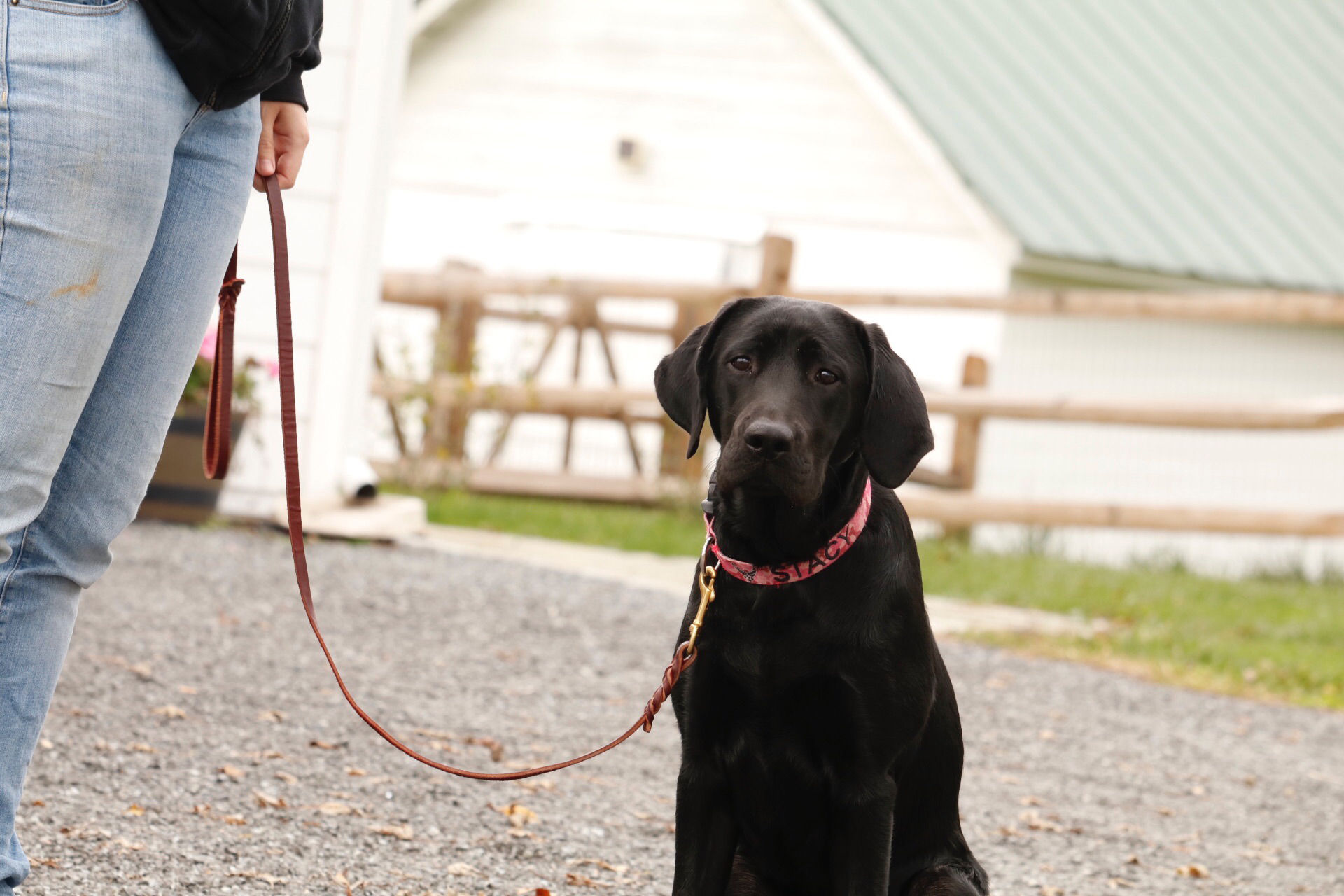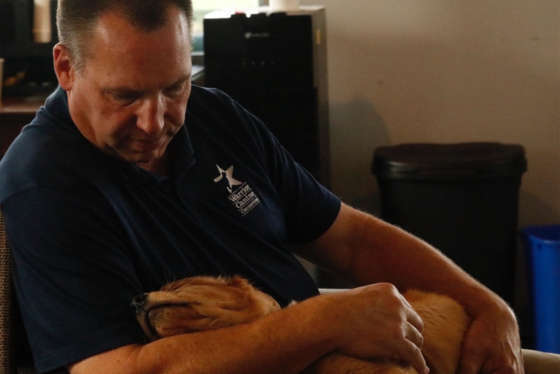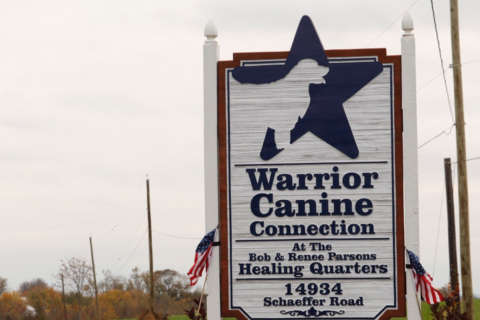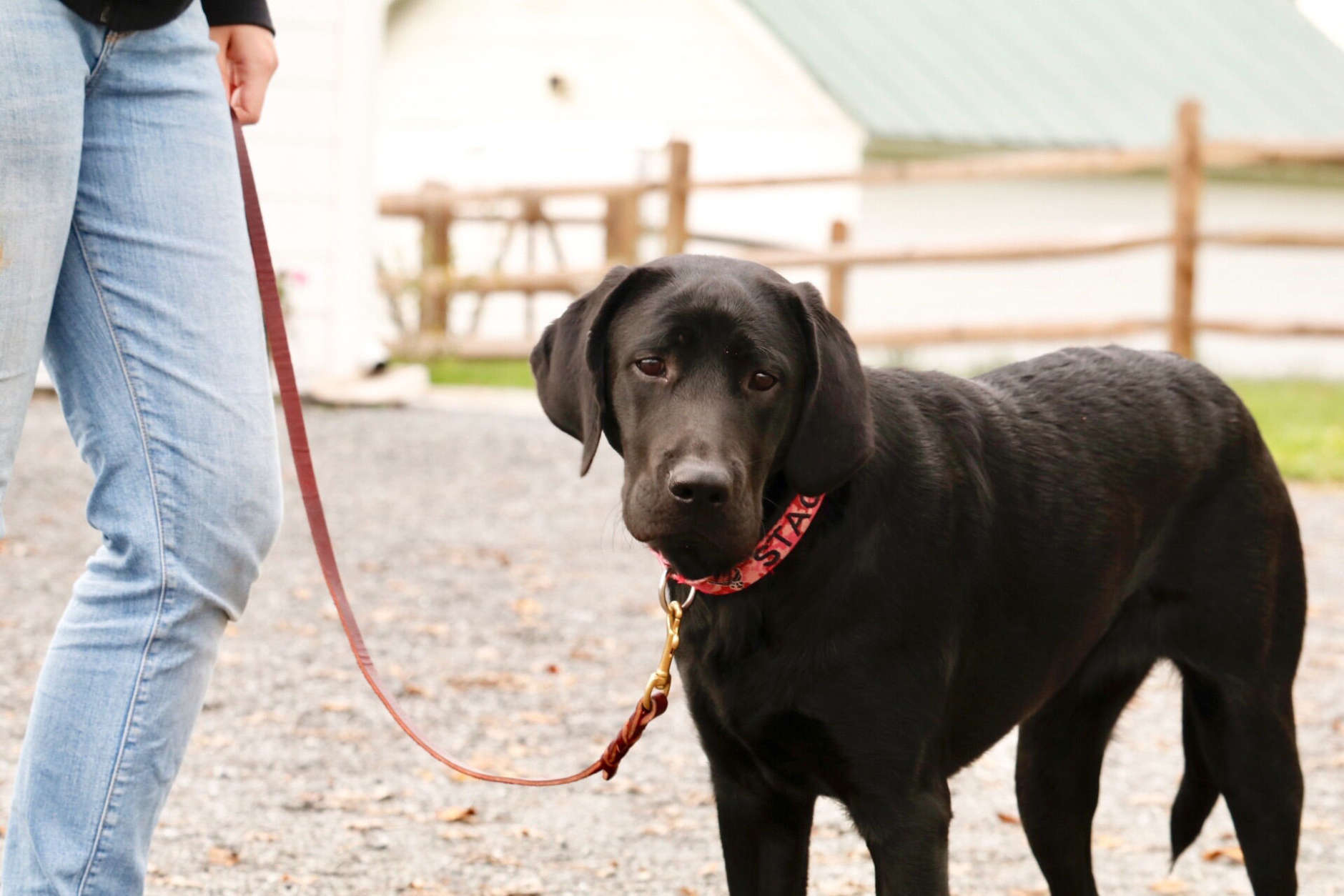
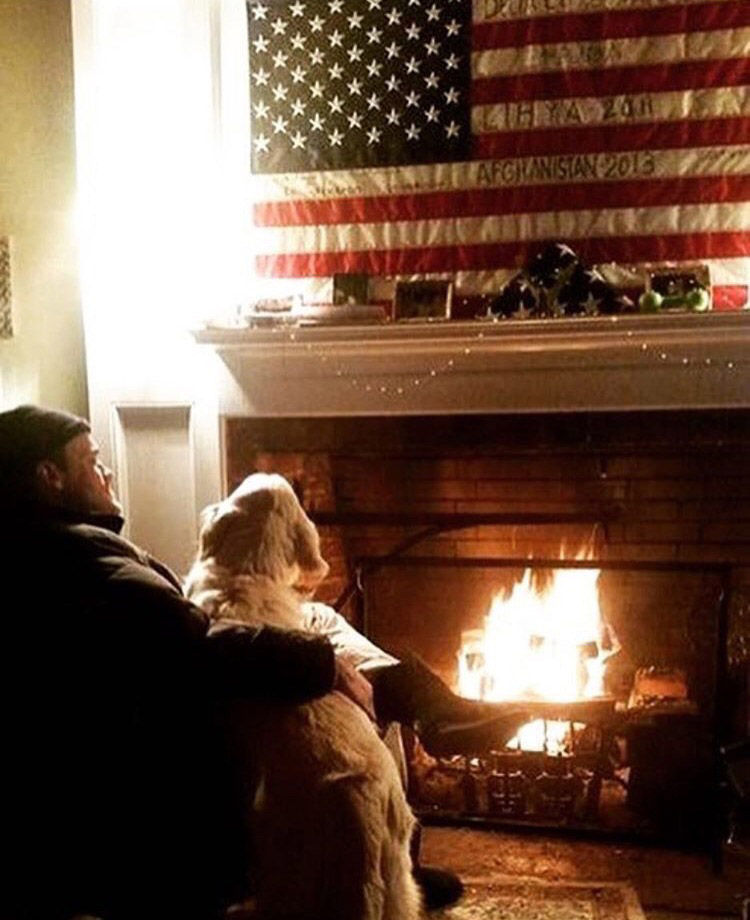
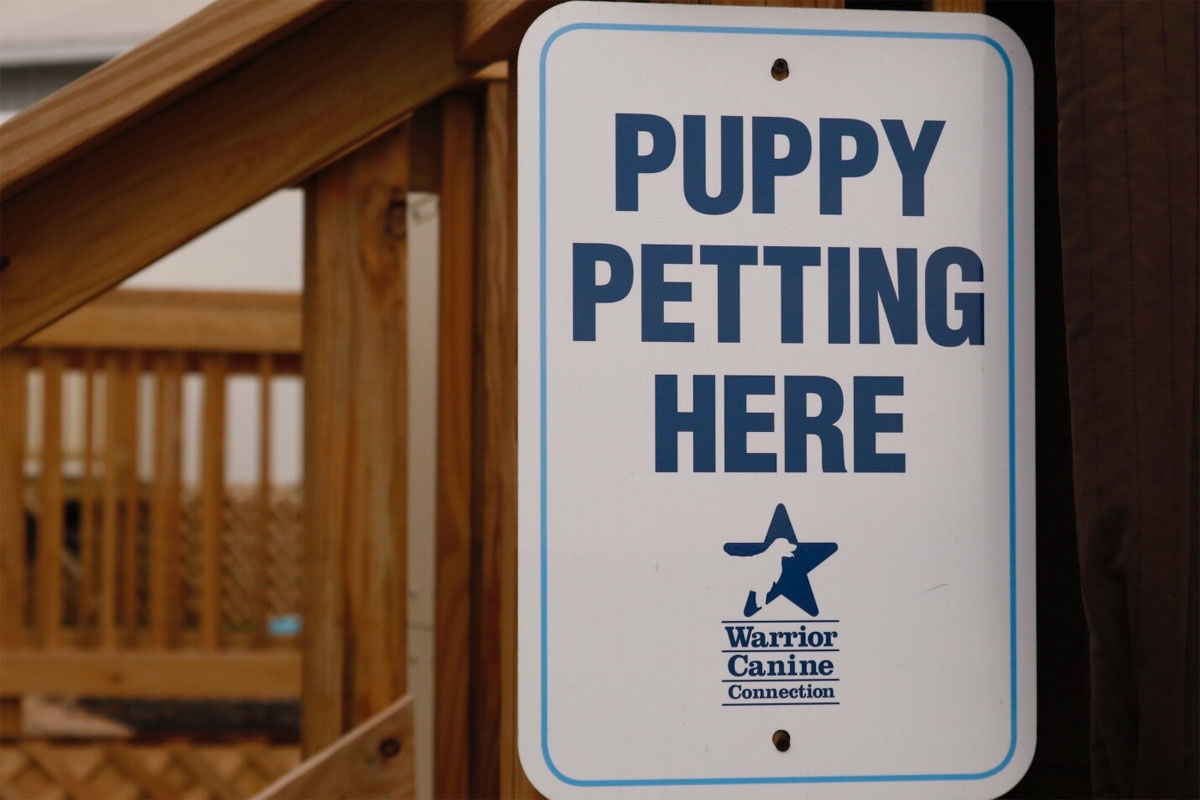
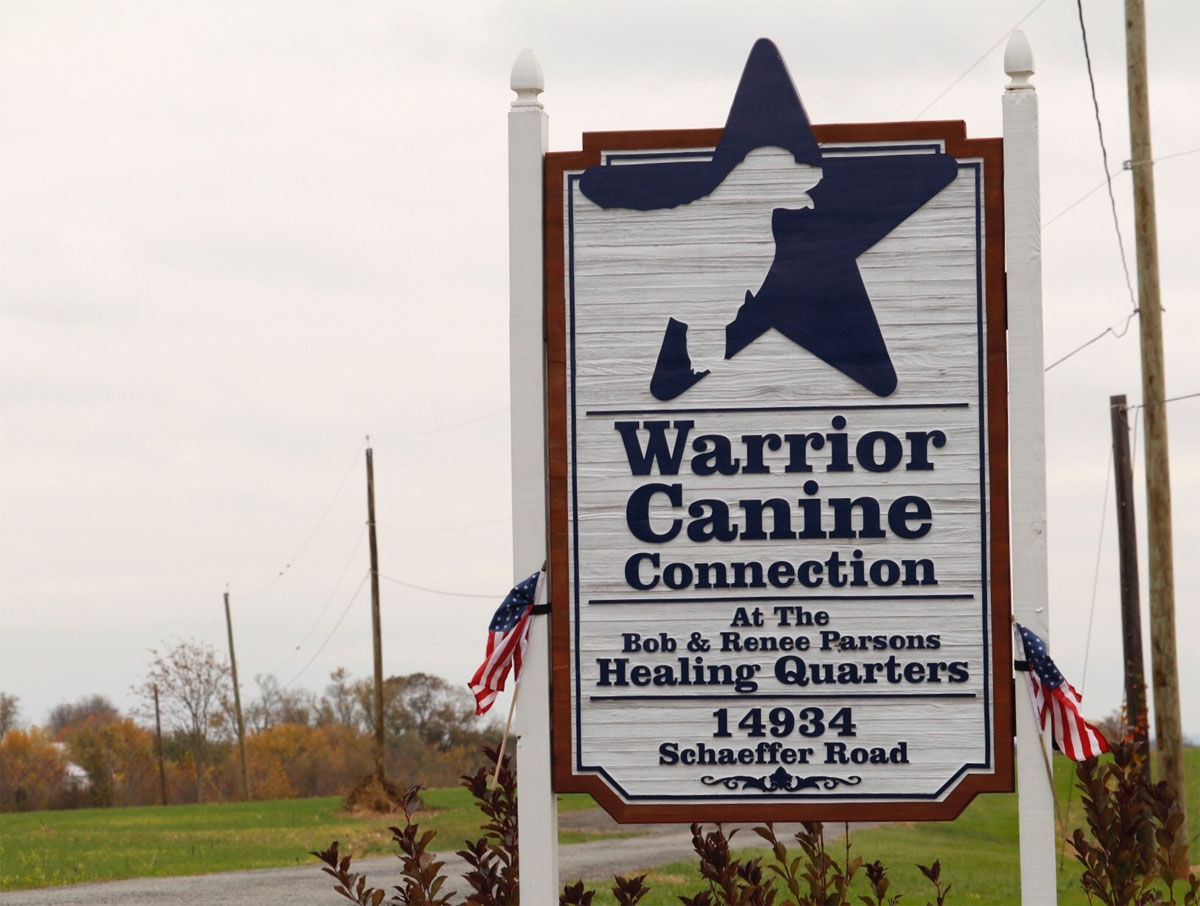
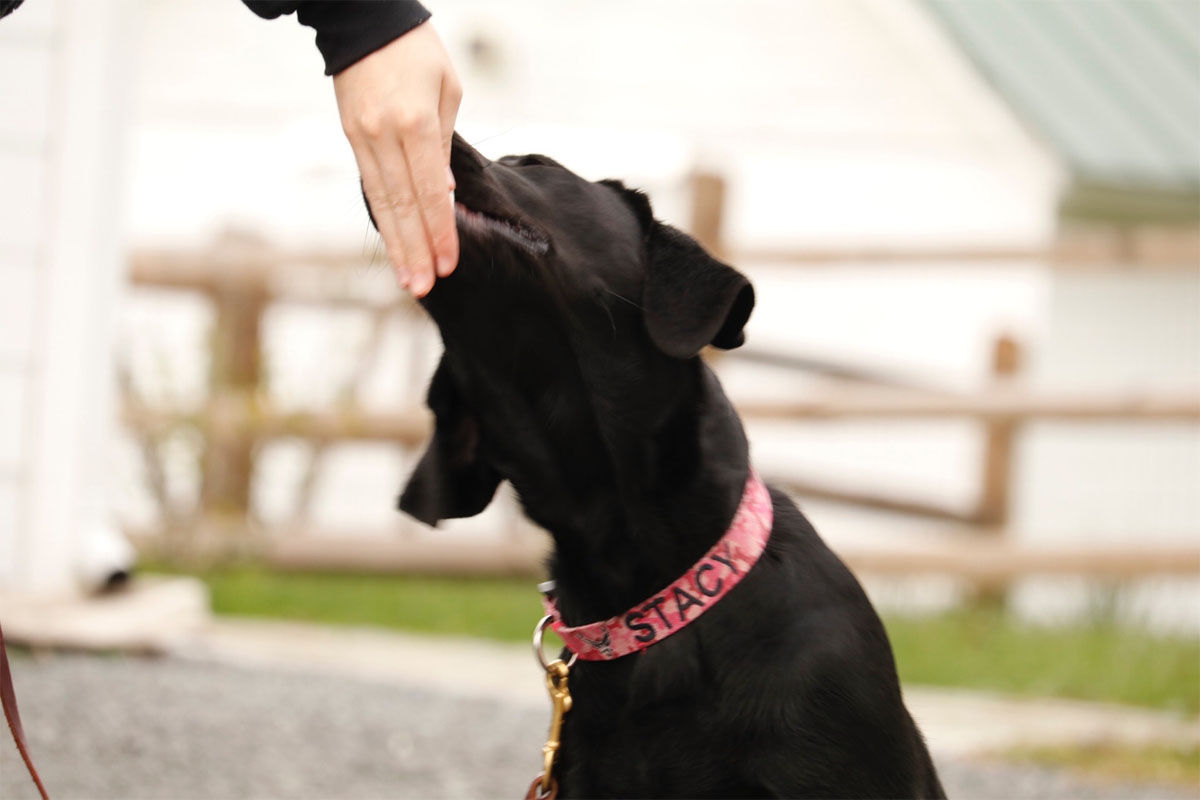
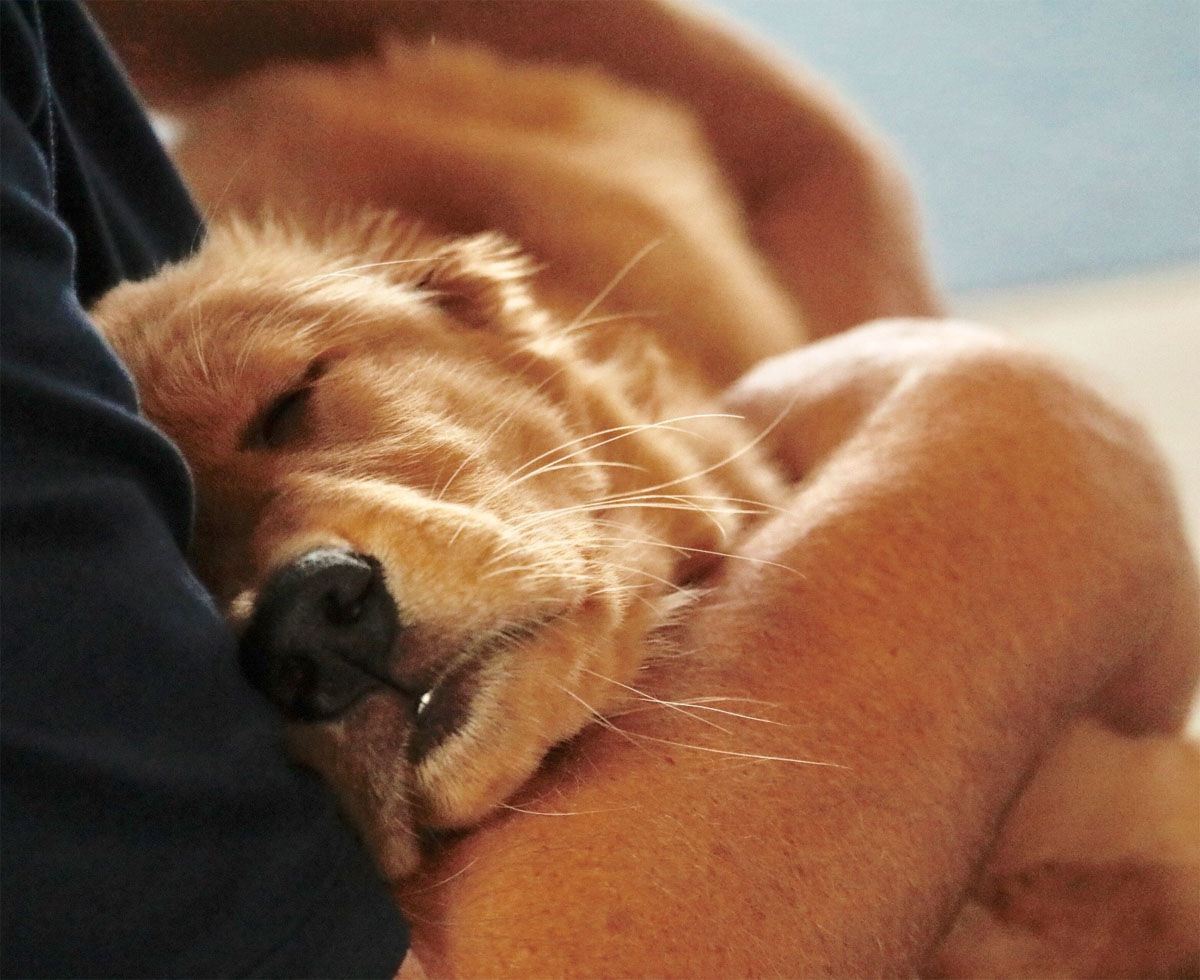
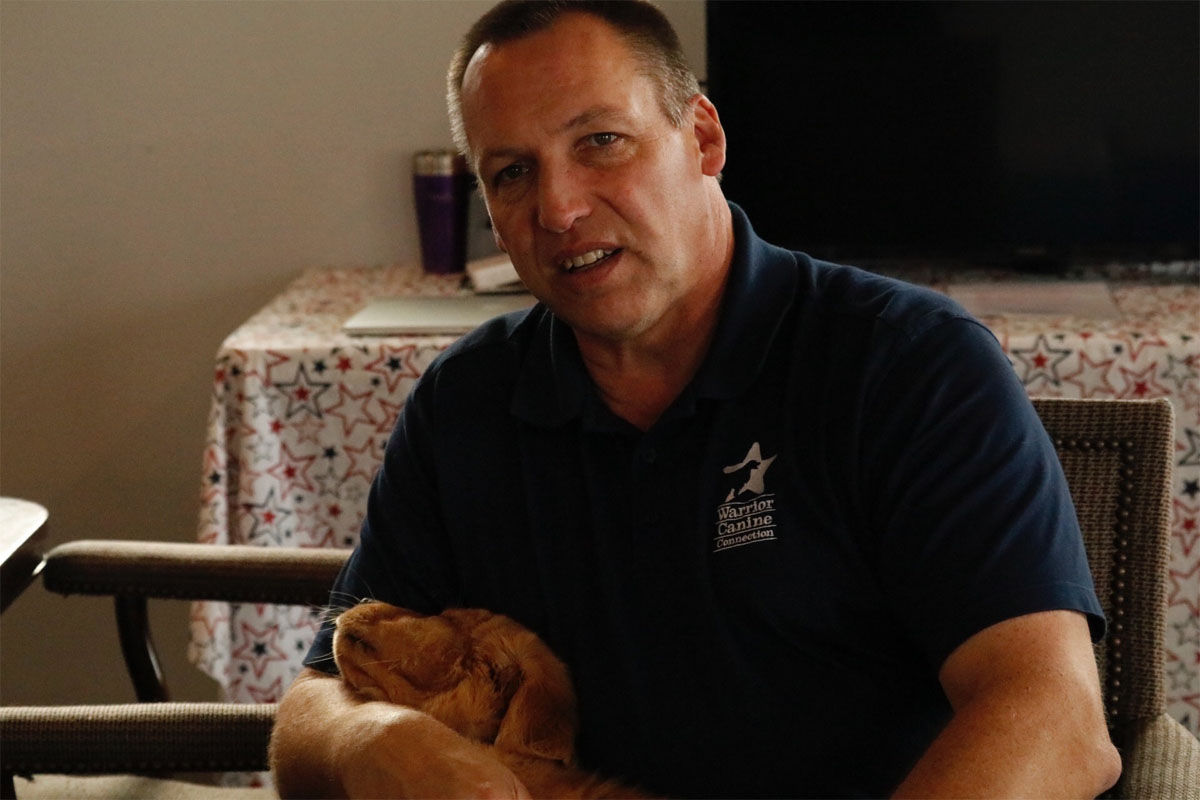
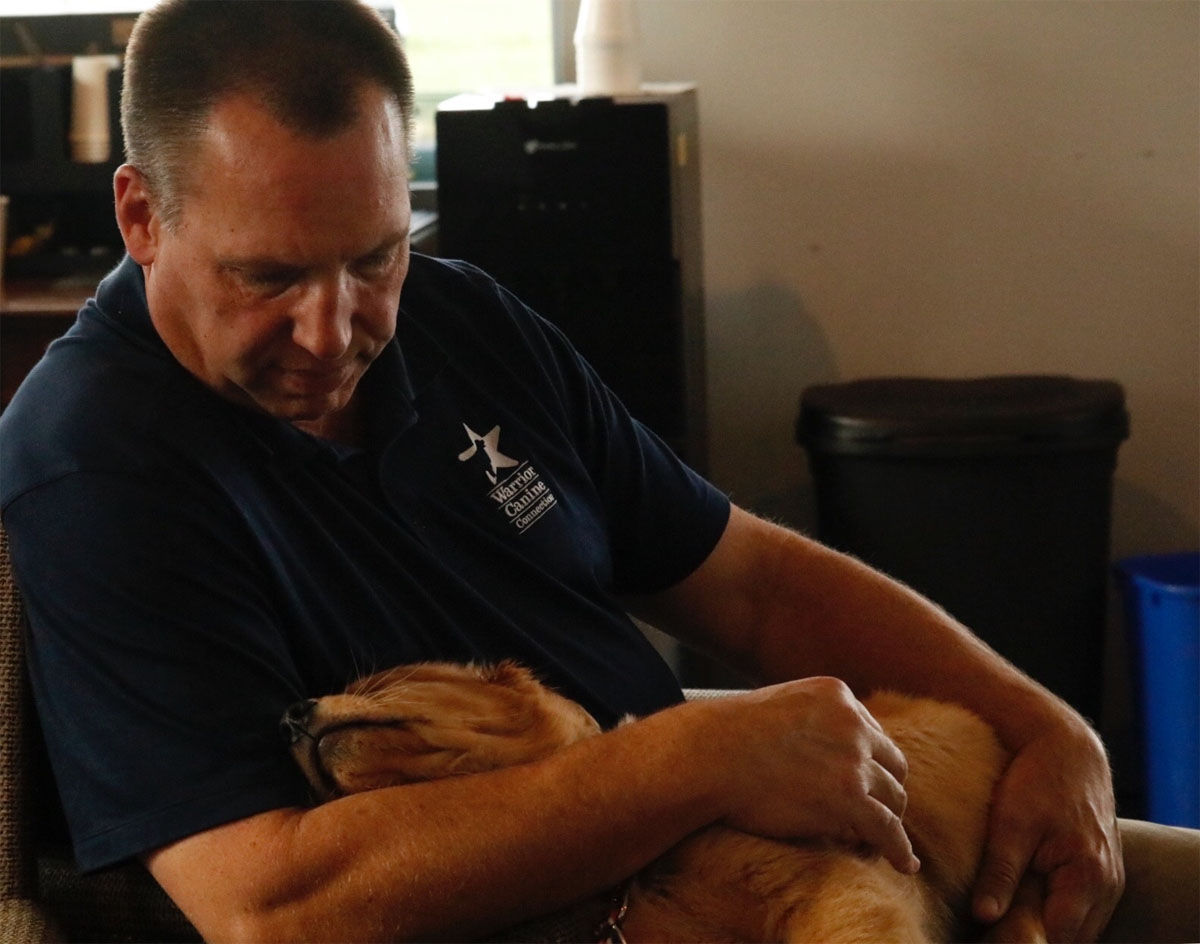
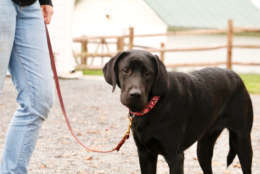

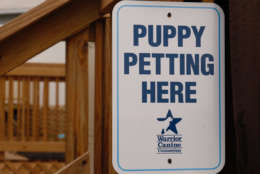
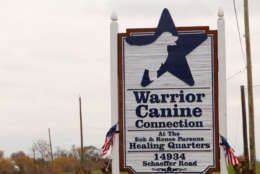
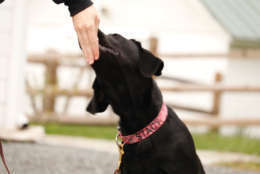

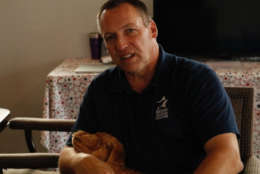
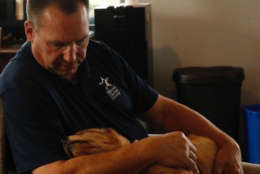
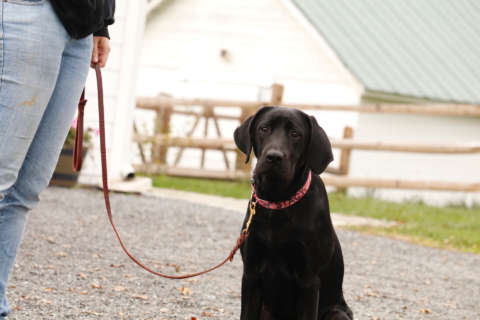
WASHINGTON — After a letter to Warrior Canine Connection notified the organization of concerns over the health and well-being of the service dogs, a veterinarian not affiliated with the group conducted a site check and evaluated the dogs. Her findings: “My overall impression while working with Warrior Canine Connection is that their dogs are well cared for.”
The veterinarian, Dr. Claire Porter, went to Warrior Canine Connection’s Boyds, Maryland, facility on April 26, within weeks of the April 3 letter of concern from a contract officer at the Defense Health Agency. That letter outlined concerns based on several complaints about dogs with “loose bowels” allowed to visit the Walter Reed National Military Medical Center.
Porter’s letter described the facilities at Warrior Canine Connection as “clean, organized and odor-free.” She wrote that the 14 dogs housed at the facility during her visit were in secure pens labeled with the dogs’ names and collar identification.
“Each dog had plenty of space to move around within their pen,” Potter wrote. “The dogs were calm and bright when I came in.”
She went on to describe the outdoor area on the Boyds property, writing, “There is also a large, grassy, fenced-in outdoor area with various toys and enrichment where dogs can exercise and play freely.”
With regards to veterinary care, Porter wrote that Warrior Canine Connection had a close working relationship with the organization’s own veterinarian and that “appropriate testing and treatment has been pursued with all issues; there are no current concerns at this time.”
Porter wrote that a board-certified ophthalmologist and a similarly qualified cardiologist evaluate the dogs regularly and that an online database to track which dogs are due for veterinary care was kept up to date to make sure that each dog received timely veterinary care.
Porter noted “minor issues” with the health of the dogs she checked: some mild dental tartar that could be resolved with regular dental care “such as brushing with dog-approved toothpaste and/or dental treats.” Other issues Porter noted with several dogs, some mild ear irritation treatable with an ear cleansing solution.
Porter’s conclusion: “The organization goes above and beyond to address any potential health concerns.”
A current “puppy parent,” who volunteers to care for a Warrior Canine Connection dog, contacted WTOP to say that the organization takes excellent care of the dogs at their facility and while in the care of puppy parents who care for and train the dogs for future placement with a veteran.
The volunteer, who did not want to be identified because she doesn’t speak for Warrior Canine Connection, wrote in an email, “The staff at WCC tell[s] everyone involved with their dogs how to reach them 24/7, to contact them immediately 24/7 and they respond 24/7.”
She wrote in the email that when the dog in the volunteer’s care had a medical issue, “the team at WCC got all the details from me and had their veterinarian on the phone within minutes … I can 100 percent confirm that the puppies and dogs at WCC are handled with respect and an abundance of love and have all their needs met.”
Warrior Canine Connection received a stop-work order at Ft. Belvoir and at Walter Reed National Military Medical Center on Oct. 27.
Rick Yount, Executive Director of the service dog program that serves veterans at both locations and places dogs with them, told WTOP Wednesday he was not told what led to the suspension of the program, and that it was puzzling.
Friday, the prime contractor for Warrior Canine Connection, MD Consulting of Waldorf, told WTOP that the suspension of the contract was not related to the issues raised in the “letter of concern,” but that Walter Reed’s medical director indicated the facility wanted to “move in a different direction” regarding canine-assisted therapy at the facility. Walter Reed’s Public Affairs Office explained that the contract was being restructured, but did not give specifics other than to say that it was being done to “enhance oversight of patient care.”

